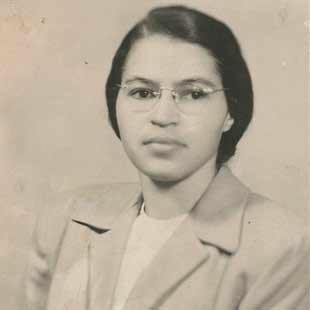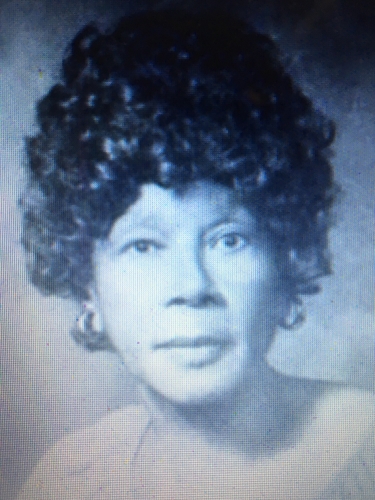From the Open-Publishing Calendar
From the Open-Publishing Newswire
Indybay Feature
2018 Rosa Parks Day remembering the Women's Political Council
The State of California is poised to celebrate the 18th Annual, Rosa Parks Day by sharing the legacy of the Women's Political Council, Montgomery, Alabama. Dr. Mary Fair Burks leadership helped provided the essential structure and unsung support for Rosa Parks, long before that fateful day on December 1, 1955.

During a period of oppression, when racism and segregation plagued the nation, one young woman refused to be held back by the injustice.
Born in the 1920s, Dr. Mary Fair Burks began fighting for equality as a teenager. During the 1930s, the Montgomery native resisted the Jim Crow laws prevalent through the South. She later referred to her self-defiance as her “private guerilla warfare.”
At the age of 18, Burks received her Bachelor of Arts in English literature from Alabama State Teachers College, which became Alabama State University in 1969. She went on to obtain her master’s degree from the University of Michigan.
Burks returned to Montgomery to become an English teacher at the Alabama State Laboratory High School. In the 1940s, she became the head of the English Department at the Alabama State College for Negroes, known today as Alabama State University.
After settling into the social life of the black community of Montgomery, Burks’ lifestyle shielded her from racism until an incident in 1945 made her realize that there were still a lot of white Southerners who did not hold blacks in high regard. During the incident, she was arrested and assaulted by a white police officer.
Outraged, Burks realized that all her degrees and her social status did not matter as long as racism was prevalent in her community. So she dedicated her life to pursuing justice for blacks during the Civil Rights era.
Her biggest contribution was the formation in 1946 of the Women’s Political Council (WPC), a group of 50 black educators, nurses, pastors’ wives, business leaders’ wives and social workers.
The WPC sought to empower black women; teach them to be financial and politically independent; and increase the number of registered voters in the black community. The WPC also was secretly aiming to end segregation in Montgomery.
Burks was the first president of the WPC. Her successor was Jo Ann Gibson Robinson, who held a chair position in the English Department at the Alabama State College. Burks was a mentor to Robinson.
It was Robinson who, along with two of her students, rushed to the basement of Council Hall on the evening of Dec. 1, 1955, to print flyers calling on the black community to stop riding Montgomery buses after Rosa Parks was arrested for not giving up her seat on to a white person.
“Mary Burks was culturally refined and an activist in her own right,” said Dr. Dorothy A. Autrey in an interview.
“She was willing to confront the Jim Crow laws, which took tremendous courage during that time.”
Burks went on to become a key organizer in the Montgomery Bus Boycott which lasted for 381 days and helped change America.
Born in the 1920s, Dr. Mary Fair Burks began fighting for equality as a teenager. During the 1930s, the Montgomery native resisted the Jim Crow laws prevalent through the South. She later referred to her self-defiance as her “private guerilla warfare.”
At the age of 18, Burks received her Bachelor of Arts in English literature from Alabama State Teachers College, which became Alabama State University in 1969. She went on to obtain her master’s degree from the University of Michigan.
Burks returned to Montgomery to become an English teacher at the Alabama State Laboratory High School. In the 1940s, she became the head of the English Department at the Alabama State College for Negroes, known today as Alabama State University.
After settling into the social life of the black community of Montgomery, Burks’ lifestyle shielded her from racism until an incident in 1945 made her realize that there were still a lot of white Southerners who did not hold blacks in high regard. During the incident, she was arrested and assaulted by a white police officer.
Outraged, Burks realized that all her degrees and her social status did not matter as long as racism was prevalent in her community. So she dedicated her life to pursuing justice for blacks during the Civil Rights era.
Her biggest contribution was the formation in 1946 of the Women’s Political Council (WPC), a group of 50 black educators, nurses, pastors’ wives, business leaders’ wives and social workers.
The WPC sought to empower black women; teach them to be financial and politically independent; and increase the number of registered voters in the black community. The WPC also was secretly aiming to end segregation in Montgomery.
Burks was the first president of the WPC. Her successor was Jo Ann Gibson Robinson, who held a chair position in the English Department at the Alabama State College. Burks was a mentor to Robinson.
It was Robinson who, along with two of her students, rushed to the basement of Council Hall on the evening of Dec. 1, 1955, to print flyers calling on the black community to stop riding Montgomery buses after Rosa Parks was arrested for not giving up her seat on to a white person.
“Mary Burks was culturally refined and an activist in her own right,” said Dr. Dorothy A. Autrey in an interview.
“She was willing to confront the Jim Crow laws, which took tremendous courage during that time.”
Burks went on to become a key organizer in the Montgomery Bus Boycott which lasted for 381 days and helped change America.
Add Your Comments
We are 100% volunteer and depend on your participation to sustain our efforts!
Get Involved
If you'd like to help with maintaining or developing the website, contact us.
Publish
Publish your stories and upcoming events on Indybay.
Topics
More
Search Indybay's Archives
Advanced Search
►
▼
IMC Network



